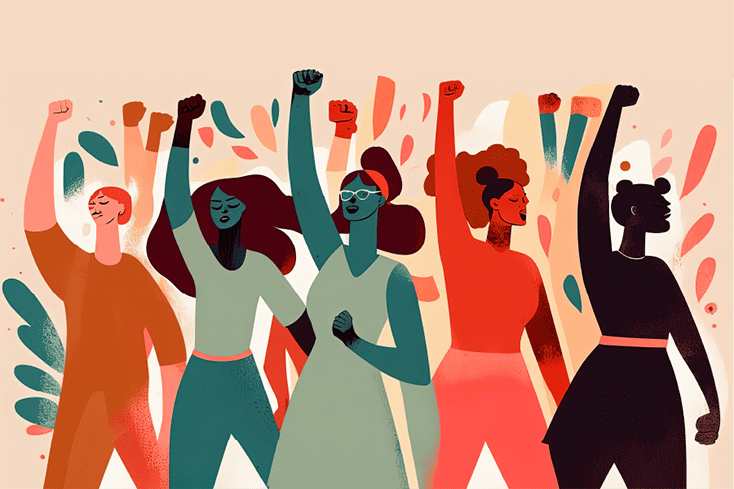June 14, 2023
By Stephanie Livingston

Advocacy is a big part of your daily life, whether you realize it or not. It’s a balance of asking for what you need or want and collaborating to find ways to make that work. We advocate every single day when we speak up for ourselves at work, at school or at home. Issue advocacy works the same way — just with policymakers at the federal, state or local level. The truth is: advocacy makes things happen.
Policymakers, from your local mayor to your U.S. Senators, rely on hearing from constituents like you about topics that matter most to you. Through advocacy, you have the power to influence how decision makers support people with mental health conditions.
Policymakers must balance multiple competing priorities; in addition to health care and mental health, elected officials must also make decisions about transportation, energy, education and more. That is why mental health advocacy is so important. As advocates, we ensure that people with mental health conditions are considered. Advocacy allows us to be heard and to share our lived experience so others can better understand mental health.
As more people get involved and advocate, the full impact becomes clearer for policymakers to pass laws that improve access to and experience of care for everyone. We can already see the impact that grassroots advocates are having on policy, with funding for mental health programs and services increasing over the years.
Your advocacy isn't just sharing your story face to face with a policymaker. It can be sending an email to your legislators urging them to support a particular piece of legislation, calling their office before a major vote, posting on social media, signing a petition, showing up to events and more. Find the ways that work best for you and get involved.
NAMI’s grassroots advocacy network is powerful. Over the past decade, NAMI advocates have fought successfully for mental health parity laws, mental health care reform, expanded coverage through the Affordable Care Act and 988 (the three-digit number to reach the 988 Suicide and Crisis Lifeline). We have made tremendous progress to ensure that people with mental health conditions receive the care they need, but our work is far from over.
Advocacy is about educating others, be it policymakers or community members, about the real-life experiences of mental illness. The most effective advocacy combines real world data with lived experience to paint a fuller, more compelling picture of the reality of mental illness.
Policymakers want to hear from their constituents about the issues they care about. Often, it’s how they set their priorities for their term in office. If enough constituents and advocates approach them about a problem, chances are it will be on their minds when they head to make policy decisions.
When you start advocating for mental health, you join a community that “gets it.” Mental health advocates are committed to raising awareness of mental illness, sharing their stories and urging policymakers and community members to support their work.
Joining a group of people working together to make your community a better place can be an empowering and motivating experience. Community connections can fuel us to continue advocating for mental health reform.
Become an advocate today by checking out NAMI’s Action Center. You can learn about policy issues we’re working on and get involved. You and your story can make all the difference.
Reach out to your NAMI State Organization or Affiliate to learn more about advocacy in your community. Visit nami.org/local to get connected.
Stephanie Livingston is a Senior Manager, Advocacy at NAMI.
We’re always accepting submissions to the NAMI Blog! We feature the latest research, stories of recovery, ways to end stigma and strategies for living well with mental illness. Most importantly: We feature your voices.
LEARN MORENAMI HelpLine is available M-F, 10 a.m. – 10 p.m. ET. Call 800-950-6264,
text “NAMI” to 62640, or email. In a crisis, call or text 988 (24/7).